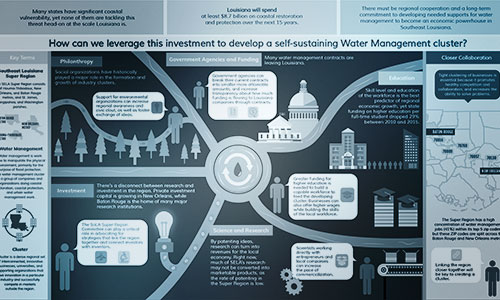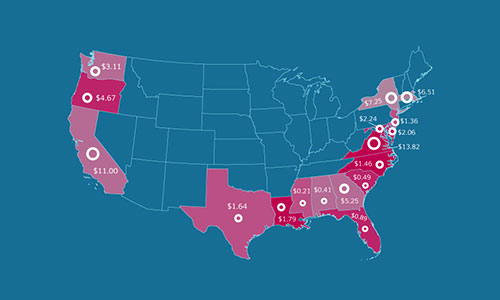Development of an industrial cluster requires a long-term commitment to developing civic and organizational capacity as well as regional cooperation. Philanthropy, government agencies, educational institutions, workforce development programs, and the research community all have important roles to play. Aligning regulations and policy with long-term coastal planning and economic development initiatives can help to amplify the economic ripple effect of coastal investment. Educational institutions conduct scientific research and contribute to the skills necessary for a deep, diverse bench of coastal expertise. Philanthropy, the nonprofit sector, and government agencies can increase regional awareness and cross-pollinate coastal issues across organizational silos. The exchange of ideas across otherwise disconnected organizations, industries, and fields of expertise creates opportunities for innovation. Such connections ensure that coastal planning and implementation are innovative, comprehensive, and effective.
Related Research






